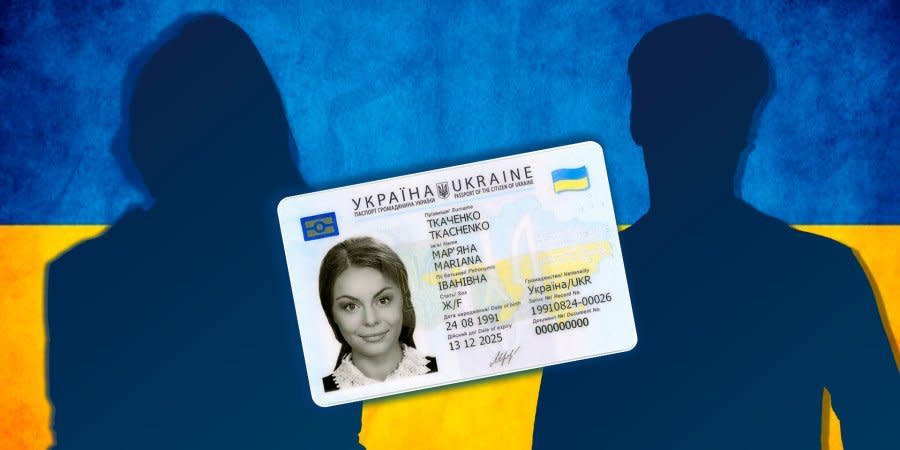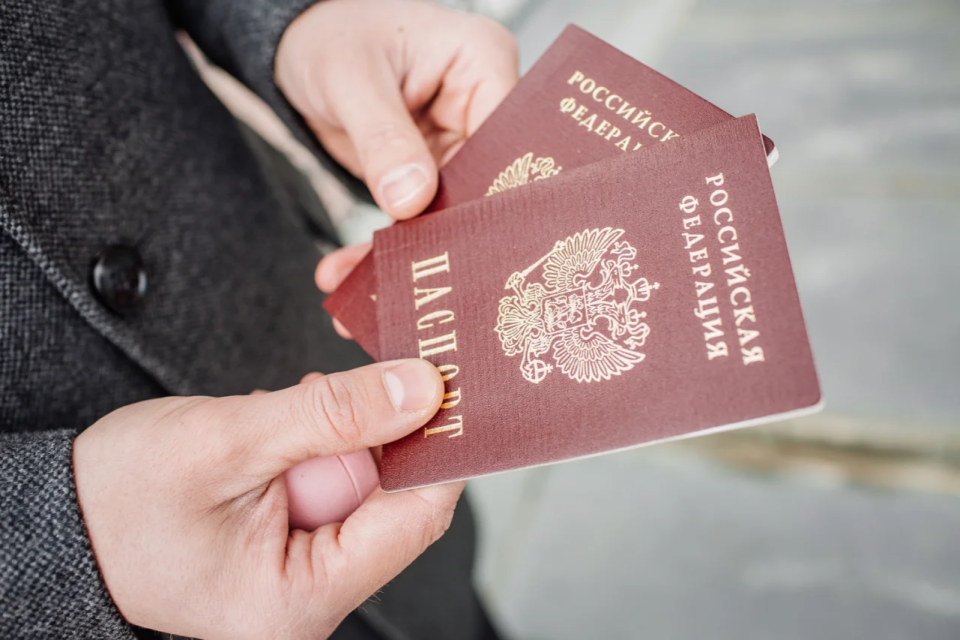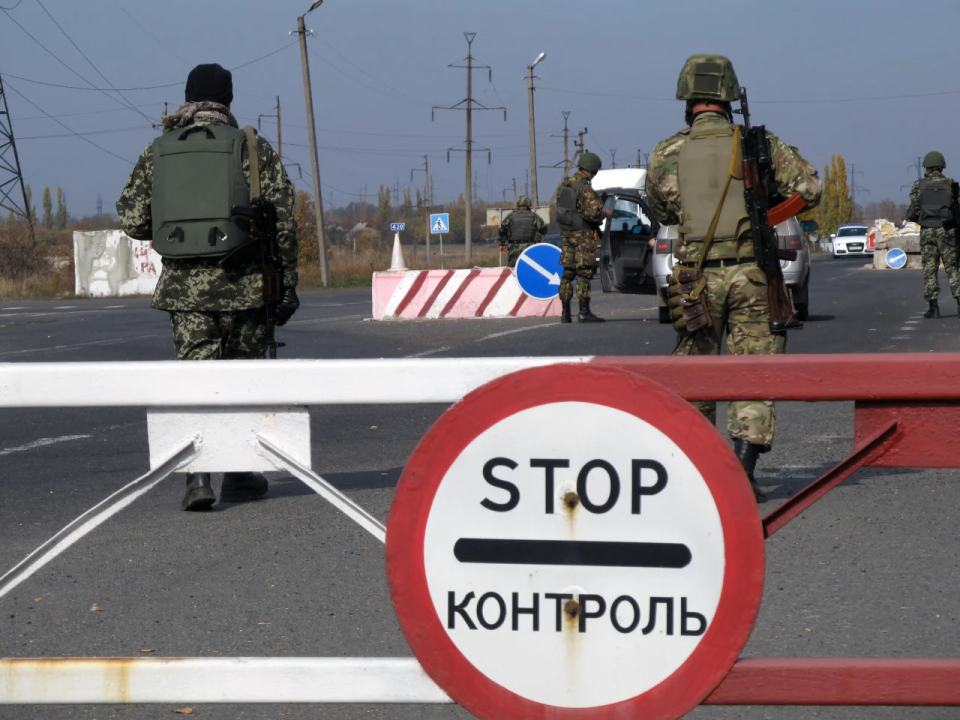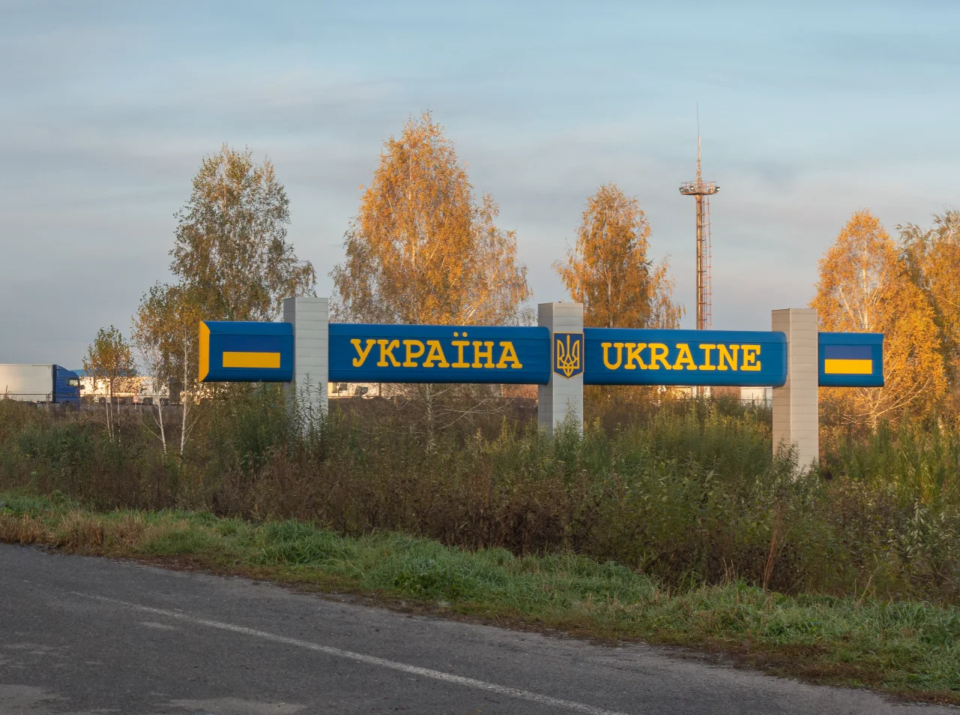Young people from occupied Donbas face major problems in obtaining Ukrainian citizenship

A petition appeared on the website of President’s Office of Ukraine on Aug. 31, 2022, calling on the government to simplify the procedure for obtaining a passport for young people from the occupied territories of Donetsk and Luhansk oblasts.
The authors of the petition are boys and girls from occupied Donbas, who were children when the war there began in 2014. Due to the occupation, upon reaching the age of 16, they could not obtain their internal Ukrainian passports, and were forced to take Russian or unrecognized Donbas puppet authority passports.
Read also: Invaders issuing Russian passports to residents of Ukraine's Zaporizhzhya, Kherson Oblasts
In an interview with NV, the authors of the petition talk about the difficulties of taking the Ukrainian route, and explain how the petition will help speed up the process of obtaining Ukrainian citizenship.
Anastasia, 18 years old
I was eight years old when the war in the Donbas began. I’m originally from Donetsk – I lived in this city in 2014, and I live here now, just like all my relatives.
I plan to live in Ukraine, because this is my motherland. There is only one problem: after reaching the age of 18 (to obtain a Ukrainian passport), you need to confirm your identity. According to current Ukrainian legislation, this can be done in two ways: either bring third parties with you as witnesses, such as relatives or neighbors, or submit a Ukrainian document with a photo that can be used to identify the person.

In the current conditions, not everyone is able to involve other people in such a procedure, especially since many still live in the temporarily occupied territories. For example, I have no relatives who would agree to go with me to the government-controlled territories. I had friends, but now they left for Europe.
There are also no Ukrainian documents with a photo that would confirm my identity. I only have a birth certificate of the documents issued by Ukraine. But there is no photo there.
It would be great if the government-controlled territories accepted documents from the temporarily occupied regions. I have the citizenship of the so-called “DPR,” as well as a Russian one. We were forced to obtain a Russian passport: for example, under the threat of expulsion from the technical school, or simply intimidated into doing so.
Kristina Polozkova, 23 years old
I was born in the town of Zuhres in Donetsk Oblast. I was also there in 2014, when the war in the Donbas began. Now I’m in the Republic of Lithuania. I arrived here on June 14, 2022 – I got here through Russia and Latvia.
Now I have the following Ukrainian documents: a birth certificate, a tax identification number, a general education certificate, and some documents about housing and education. I also have a passport issued by the so-called “DPR” – I received it in 2016, because I could not live, work, or study without a passport at all.
Read also: How Russia is blasting Mariupol into the past
Two weeks before the full-scale invasion, I also received a Russian passport – I had to do that, because I would not have been able to leave the “DPR” without it and get to Lithuania. Even though I have a Russian passport, I consider myself Ukrainian by citizenship. All my relatives remained in the occupied territory of Donetsk Oblast. Some live in Russia, but I have no contact with them.
I really want to return to Ukraine, because my home is there. I hope Ukraine will be de-occupied very soon, and I’ll be able to return home. Of course, (before 2014, when the war in the Donbas began) I was a child and I don’t remember a lot. But I can call my childhood the best time of my life, because there was no war then, we studied our native language at school, and we had some plans for the future.
The main motivation for me to return is to help rebuild the country after our victory. I don’t know exactly how I can help, but I really want to contribute.
The main problem in obtaining a Ukrainian passport for people like me now is the lack of an opportunity to involve parents or neighbors as witnesses. My relatives are afraid to leave the occupied territory – after all, eight years of “zombification” have taken their toll. It’s also very expensive: travel, housing, food – it may seem these are trifles, but it’s impossible to live in the so-called “DPR” with a salary of RUB 15,000 ($247), not to mention travelling halfway across the world. Unfortunately, the only safe way to get out now is through the European Union.

It’s interesting that in July 2022, based on my birth certificate, I received a residence permit in Lithuania. Everything was simple: I came to the migration service, gave them my birth certificate. I was registered and received a residence permit a month later. In Ukraine, submitting only the birth certificate itself is not enough to obtain a Ukrainian passport. My native country demands that I prove that I’m really Ukrainian.
I repeatedly sent letters to Ukraine’s migration service, explaining my situation. But I always received refusals in return. Before leaving for Lithuania, I wrote to the Consulate of Ukraine in Latvia with a request to help leave Russia and get at least some kind of document – I also got a refusal, even an indifferent attitude.
In my opinion, obtaining a passport can be facilitated by adding to the requirements the presence of witnesses or parents online, with the possibility to send scanned copies of the documents, as well as a list of questions that will help confirm the identity. It would also be possible to expand the list of witnesses: for example, to add school teachers who can also confirm the identity of the applicant for Ukrainian citizenship.
Hanna, 19 years old
I’m originally from Makiivka in Donetsk Oblast. Now I’m in the occupied territories, but I plan to leave for the European Union. My relatives remain in Makiivka.
Read also: Student who fled occupied Donbas, escaped forced mobilization, tells of life in sham republic
In 2019, when I turned 16, I obtained my first passport there, in the occupied Donbas. Without it, I wouldn’t have been able to graduate from school in the occupied territories, register for exams, and enter a higher educational institution. A year later, in 2020, I also obtained a Russian passport.
In addition, I also have Ukrainian documents: a tax identification number, a birth certificate. I have my parents’ marriage certificate, a copy of form A.
The impossibility of obtaining a Ukrainian passport without the presence of parents is a problem for many. Now we are adults, yet it’s very difficult to bring witnesses to carry out this procedure in the conditions of war.
I see my future in a free country of which I’m a citizen – in Ukraine. I want to return to Ukraine in the future, because I want a happy life at home, with the opportunity to work, travel, live.
Maryna, 19 years old
I’m originally from Donetsk. In 2014, my parents and I stayed under occupation. My parents did not want to leave the occupied territory for various reasons. One of them is that it’s very difficult to start a “new life” in another city from scratch. So now my mother remains in Donetsk, while relatives live in various cities of Ukraine, as well as in the occupied territories.
The occupation taught me to never plan. The maximum is two weeks in advance. I left the occupied city, but I didn’t stay abroad. Long before the full-scale invasion, I wanted to live in Ukraine, so I chose Lviv to live. I came here in June 2022, alone. Now I live in a dormitory.
Read also: Luhansk resident reveals how the city has fared after its occupation in 2014
As practice shows, the lack of a passport is the core of all problems. I can’t open a bank account, get financial aid, and before that I couldn’t apply for online courses at school. I can do absolutely nothing. It’s even impossible to obtain a temporary ID card. I don’t understand why the Ukrainian government has done nothing in this direction for so many years of occupation.
Of the Ukrainian documents, I have a birth certificate, a tax identification number, a certificate of acknowledgement of paternity, and some other documents. But there is no photo in all these documents, which is necessary to confirm my identity. I also had a passport from the so-called “DPR.” I obtained it in the so-called local migration service in 2019, but it was later withdrawn.
As of now, I have applied to several authorities with a request to somehow help me in solving the passport issue: the State Migration Service, the National Police, the SBU security service, as well as the Right to Protection Charitable Foundation. I also tried to obtain secondary legal assistance for internally displaced persons.
What is needed now is a change in the identification procedure. It’s necessary to ensure that not only neighbors or relatives can testify in the migration service, but also classmates or fellow students, friends, boyfriend or girlfriend, social security workers, etc. Testimonies must also be taken online.
The Resolution of the Cabinet of Ministers No. 302, namely paragraph 43, determines that the State Migration Service can send requests to establish identity only when there is access to databases and archives. But how can they make this request in the case of Donetsk Oblast if many settlements are still under occupation there? And the identification procedure (according to current regulations) can last up to two months. What should I do all this time? I don’t know.
Mykhailo, 23 years old
I’m originally from Makiivka in Donetsk Oblast. In 2014, when the war in the Donbas began, I lived in Makiivka. In August 2022, I left the so-called “DPR” as it was dangerous to stay there in the future due to forced mobilization. I managed to leave for Russia where I enrolled in a master’s degree at a local university – it was thanks to the admission documents that I was released from the “DPR.” All my relatives still live either in Makiivka or in Donetsk.
Read also: 350,000 civilians remain in Ukraine-controlled 45% of Donetsk Oblast
After the end of the war, I want to return to Ukraine and also obtain a Ukrainian passport. I couldn’t do that immediately, because my mother would have to go with me as a witness. But she’s raising three children on her own, so when I turned 16, she did not have the opportunity to travel with me to the government-controlled territories for processing documents. Now she also won’t be able to leave since her (Ukrainian) passport has already expired due to age.
I learned from lawyers that obtaining a Ukrainian passport without the presence of a witness is difficult and time-consuming process. I don’t know if this is even possible in my situation. Nobody seems to know that. Of the Ukrainian documents, I only have a birth certificate, which is not suitable for personal identification, as well as the 9th grade school certificate. I also have a passport of the so-called “DPR” and a Russian passport – without it, I wouldn’t have been able to enter university and leave the zone of forced mobilization. Due to the presence of a Russian passport, I’m afraid to go to Ukraine now since I’m worried about my safety.
Yelyzaveta Berest, 18 years old
I’m originally from Komsomolske, Starobesheve district, Donetsk Oblast, and that’s where I lived when the war began in 2014. My grandmother still lives in Komsomolske, while my mother lives in Donetsk.
On July 16, 2022, I boarded a bus in Donetsk and later found myself in the Netherlands. It was possible to enter this country with a Ukrainian birth certificate. I obtained a passport of the so-called “DPR” in 2019 – without it, I wouldn’t have been able to study, work, and live in this territory.
In the Netherlands, I received a certificate confirming my identity, as well as a BSN number. The consul of Ukraine in the Netherlands helped me obtain the certificate – this document contains my photo and the signature: “Identified, citizen of Ukraine.”
I want to connect my future with Ukraine: I want to obtain a Ukrainian passport and live in the country where I was born. However, in order to receive a passport of a citizen of Ukraine, one of the parents must be present as a witness. But at the moment, my parents don’t have the opportunity to leave the temporarily occupied Donetsk to the government-controlled territory. It would be great if, instead of a personal presence, it would be possible to confirm my identity via video link with relatives.

Veronika Krusak, 22 years old
I was born in the city of Luhansk, Ukraine, and lived there all my life. My parents and relatives still live in Luhansk.
After the beginning of the war in 2014, I suffered from anxiety attacks, nervous breakdowns and depression for a long time, had a tendency to self-harm, and haven’t gotten rid of it until now. For eight years, I’ve been living in a depressed state with no motivation to live, but with daily suicidal thoughts and abject apathy.
I don’t support the war, the occupation and Putin’s regime in Russia, Lukashenko’ regime in Belarus, I’m against any restriction of the rights of people and animals. I was always interested in all the injustice of the world, so life in Luhansk became even more impossible. I remember my thoughts and feelings when I walked along the streets of Luhansk, which were decorated with Russian flags. Being there was getting worse and worse every day. And this is difficult, because Luhansk is my native region.
In June 2022, I accidentally learned that, for humanitarian reasons, the European Union allows Ukrainian citizens to enter even with only one Ukrainian birth certificate, so without thinking, I quickly packed my things and left for Poland.
Now I’m in Warsaw. I planned to immediately go and obtain a passport in the government-controlled territory, but I have no witnesses for this procedure, and I also have nowhere to live during the paperwork process.
I’m a freelancer, but I won’t be able to receive a salary since I cannot open a bank account (in a Ukrainian bank) without a certificate that I belong to the internally displaced persons (IDPs). But it’s very difficult to get an IDP status when you’re from the “LPR.” Ukraine doesn’t accept documents issued by unrecognized republics.
I have (the following documents) with me: a Ukrainian birth certificate, the original of my mother’s paper Ukrainian passport – expired, her tax identification number, a Ukrainian vaccination certificate, a student card issued by Volodymyr Dahl East Ukrainian National University. I also have passports of the so-called “LPR” and Russia. According to my birth certificate, I have Ukrainian citizenship.
I obtained a passport of the “LPR” in 2016 when I had to enter college. I also obtained a Russian passport in 2021 when I was looking for a job. I had to receive my salary on a Russian Sberbank card. Both then and now, Luhansk “state” institutions and educational institutions force people to obtain a Russian passport and SNILS (individual insurance account number) due to threats of dismissal.
We (those who lived in the occupied territories and were children at the time of the occupation in 2014) can be said to be children of war. We didn’t have the opportunity to obtain a Ukrainian passport in the occupied territory, while leaving (to the government-controlled territories) was in-comprehensible at that time. The reason is the influence of propaganda on both parents and children, as well as the front line, battles, financial status and other factors, including psychological ones.
I plan to return to Ukraine, I want to live and work in Ukraine, build my family. I see my future in a country that won’t suppress me because of where I was born, who I am, where I will be a full-fledged member of society, but, unfortunately, it’s difficult, because I was born in Luhansk. A city, at the mention of which you become second class, no matter where you are, “why did you come here,” disdainful or sympathetic looks. I have the right to a normal life, and I’m determined to fight for it.
Read the original article on The New Voice of Ukraine

